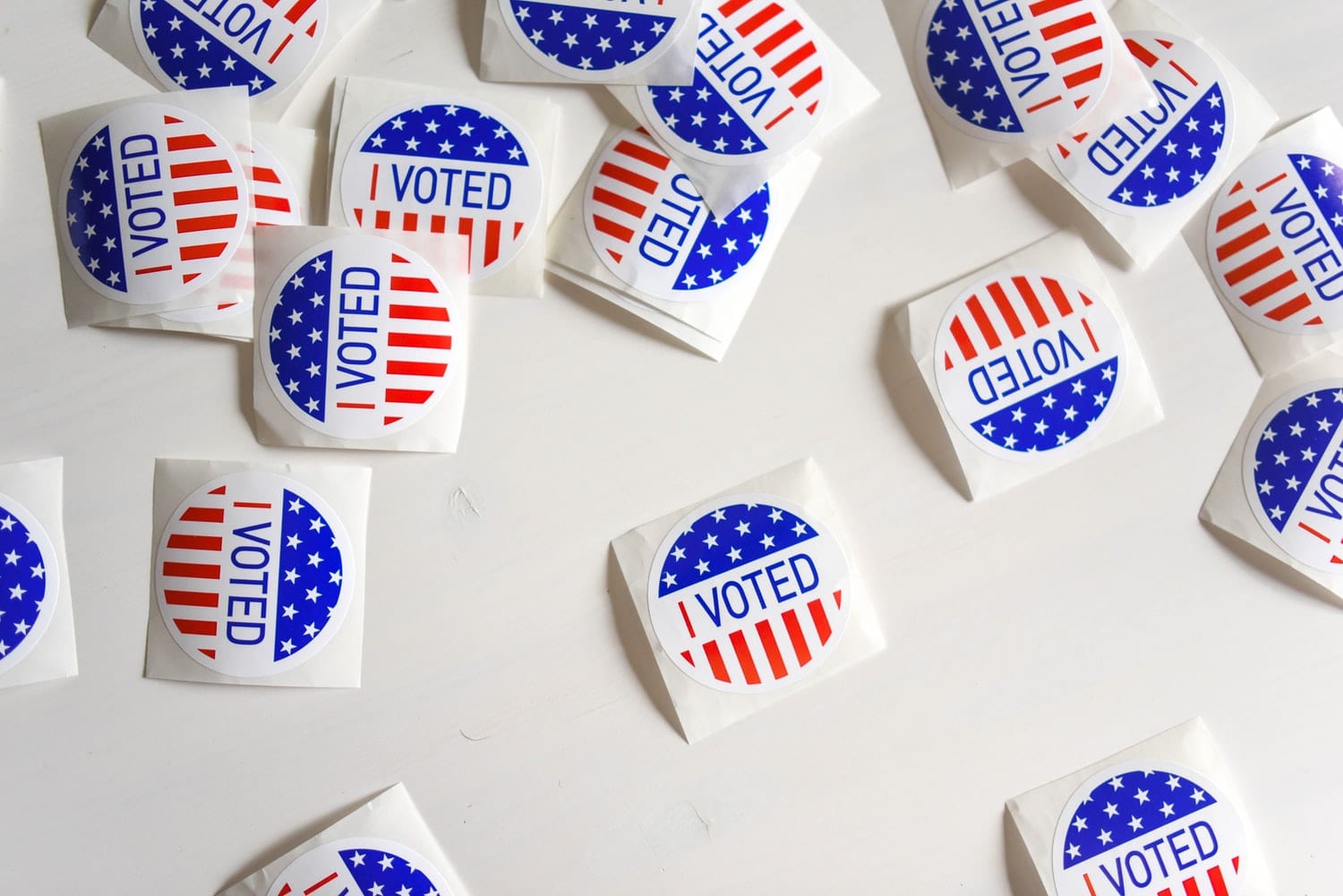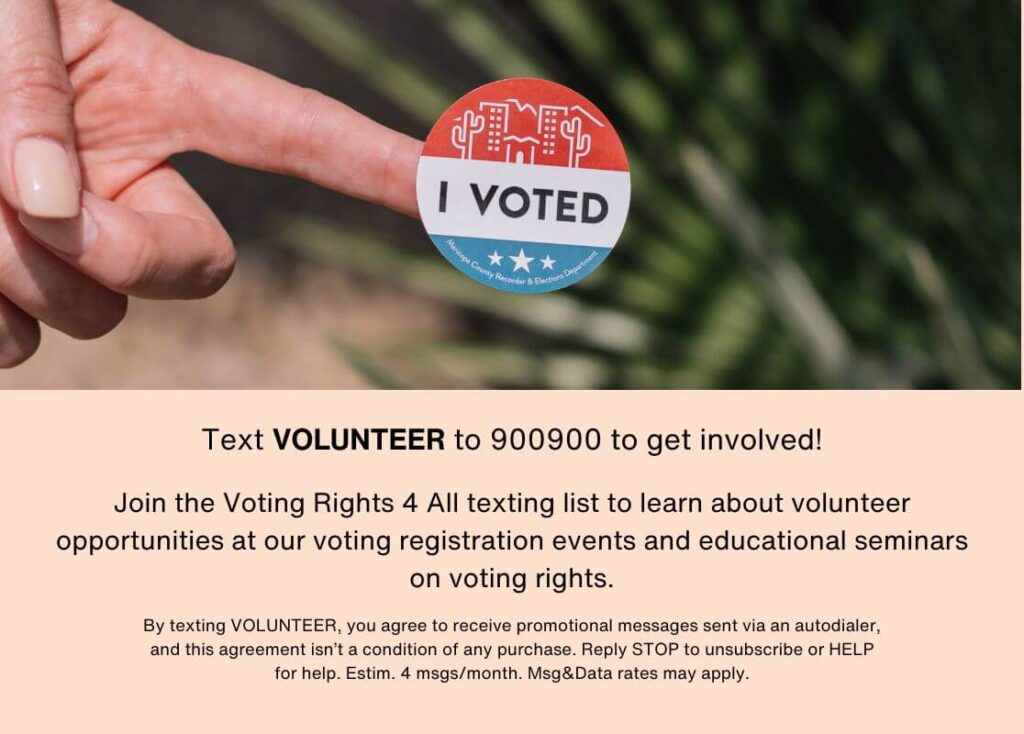Political texting rules for bulk SMS that you can’t ignore
Are political texts illegal? Check out the political texting rules and bulk SMS best practices you need to stay compliant and keep supporters engaged.

Are political texts illegal? Check out the political texting rules and bulk SMS best practices you need to stay compliant and keep supporters engaged.

Over the last few election cycles, we’ve seen narrow races that prove every vote counts.
For candidates looking to create a personal relationship with voters without coming across like a telemarketer, texting is the ideal middle ground. Even with all of texting’s benefits, though, it’s possible to mismanage your messaging strategy and annoy your supporters.
To help prevent this, I’ll share some rules and guidelines to keep in mind as you plan your political SMS strategy.
TABLE OF CONTENTS
Political campaign text messages are legal, but there are certain actions that can make your texts illegal.
It all comes down to the basic guidelines of permission. Our SMS compliance guide will tell you everything you need to know about getting express written consent to text your contacts, but here are the highlights:
Disclaimer: Please note that this advice is for informational purposes only and is neither intended as nor should be substituted for consultation with appropriate legal counsel and/or your organization’s regulatory compliance team.
In the U.S., there are two primary organizations that help regulate political text messages. These groups ensure fair practices that protect recipients from unsolicited or misleading messages.
Violating texting compliance rules can lead to fines and even legal consequences.
Organizations that regulate U.S. political text messages:
At a high level, you need to:

An example of a political organization’s invitation to join their SMS list.
Let’s take a closer look at the FCC and the CTIA.
The FCC is the regulatory body that oversees media and phone communications in the United States. They’re responsible for enforcing legislation called the Telephone Consumer Protection Act (TCPA) that governs the telecommunications industry.
Since 1991, the TCPA has provided rules for:
The text messages that fall under the TCPA specifically are those sent from an application to a personal phone (known as A2P messaging). If you’re sending texts from an SMS service provider like SimpleTexting, you’re sending A2P messages.
TCPA text message regulations:
💡 Learn about compliant opt-in methods to collect permission to text your supporters.
Some political organizations get around the TCPA’s rules for sending unsolicited texts by having volunteers send messages from their personal phones. While not (yet) illegal, sending texts without permission from a personal phone is a sure way to annoy your supporters.
Are political text messages exempt from the Do Not Call Registry?
Technically, political texts are exempt from the Do Not Call registry, which is a list of citizens who have opted out of telemarketing calls. But they are regulated by the TCPA.
The CTIA is an industry organization that represents the interests of the telecommunications industry, like fighting spam text messages.
Though it’s not a government agency, the CTIA creates guidelines to help organizations maintain good standing with wireless carriers and oversees short codes (5- or 6-digit numbers, which are common for political campaigns).
According to the CTIA, your invitation to join your texting list (or “call-to-action”) should clearly list:
After a contact opts into your texting list, you’ll need to send a confirmation message that includes:
Campaign Verify is a non-partisan, nonprofit service that helps validate the identity of political campaigns, parties, and PACs in the U.S. Its mission is to rebuild Americans’ trust in the electoral process, specifically by regulating political text messages and other communications.
If you want to send political messages from a 10DLC number and your organization has a non-profit EIN, you must first register directly with Campaign Verify and obtain an Authorization Token (which carries a one-time fee of $95 per two-year election cycle).
If you don’t want to register your organization or don’t have a non-profit EIN, you can choose to text from a toll-free number instead.
In Canada, the Canadian Radio-television and Telecommunications Commission (CRTC) is the group that sets rules for unsolicited telecommunications. Like the FCC in the U.S., the CRTC is focused on protecting citizens from spam and scam calls.
Under Canada’s Anti-Spam Legislation (CASL), political organizations and candidates must adhere to a set of regulations when sending electronic messages, depending on the nature of their messages.
If your texts promote a political organization or candidate, you need to:
If your texts solicit a financial donation or non-monetary contribution, you don’t need to obtain express consent to send messages.
In the run-up to an election, most people receive dozens of political text messages—many of which they never signed up to receive.
Here are a few best practices to help you build a list of engaged SMS contacts who look forward to your texts.
Best practices for political bulk SMS
Since every campaign and organization has different goals and supporter demographics, I can’t give you a specific message frequency. But a general guideline is to only send texts when you have something valuable or noteworthy to share.
You can look in your SMS platform’s analytics dashboard to see if people are clicking on links in your texts and whether people are unsubscribing. Decreasing click-through rates and increasing unsubscribe rates are signs that your message frequency (and possibly the contents of your messages) aren’t working for your contacts.
Want to connect with your supporters and inspire them to take action? Personalize your texts with custom fields. Something as simple as seeing their name could drive someone to open or click where they otherwise might not have.
Include an explicit call to action in your texts to encourage people to show their support.
Example political text calls-to-action:
Keep your contacts engaged and responsive to your messages by collecting information about their interests and demographics.
For example, you can use our Data Collection feature to ask contacts about what political issues they care about and where they live. Then you can segment your contacts and send targeted messages, like information about how your candidate is supporting certain causes and when they’ll be visiting specific locations.
Ready to start building your political campaign’s SMS list? Sign up for a free 14-day trial of our text messaging platform today.
This piece was originally published March 30, 2020. It was refreshed May 23, 2023. Meghan Tocci and Dani Henion contributed to this piece.
Meghan Tocci is a content strategist at SimpleTexting. When she’s not writing about SaaS, she’s trying to teach her puppy Lou how to code. So far, not so good.
More Posts from Meghan TocciCall routing is a call management feature used to place incoming calls in a queue. Learn about call routing and how it can optimize customer contact.
ReadNot sure how to deal with a failed payment by a customer? Use these payment failure message templates to collect quickly and easily.
ReadStart a text marketing campaign or have a 1-on-1 conversation today. It's risk free. Sign up for a free 14-day trial today to see SimpleTexting in action.
No credit card required